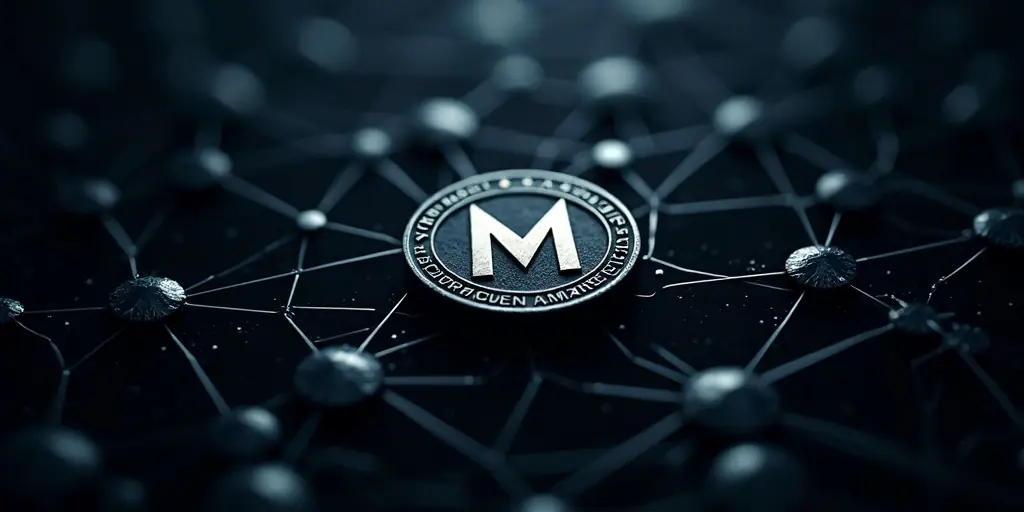Nach der bestätigten 51%-Attacke auf Monero reagiert Kraken drastisch! Die Einzahlungen sind gestoppt. Was bedeutet das für dein Investment und die Zukunft von Privacy Coins?
Kraken’s decision to suspend Monero (XMR) deposits following a confirmed 51% attack on August 12th sends ripples through the crypto space. This highlights inherent vulnerabilities in Proof-of-Work (PoW) blockchains. A 51% attack allows malicious actors to control the network’s hash rate, enabling them to manipulate transactions and double-spend coins. This incident serves as a stark reminder of the risks associated with concentrated hashing power and its potential impact on decentralized currencies.
A 51% attack, also termed a ‚majority attack,‘ jeopardizes Proof-of-Work blockchains like Monero, occurring when a single entity gains control exceeding 50% of the network’s computational power. This power enables the attacker to manipulate the blockchain, reverse transactions, engage in double-spending, and even censor certain transactions.
In Monero’s case, the mining pool Qubic executed the attack, briefly commanding over half the network’s hash rate. This dominance allowed Qubic to reorganize the Monero blockchain, potentially leading to transaction manipulations. The financial implications are significant: user trust erodes, exchanges face potential losses, and the long-term viability of the currency is questioned.
Kraken’s proactive measure stems from the exchange’s commitment to safeguarding user assets and mitigating risks associated with potential double-spending. By halting deposits, they protect users from depositing tainted XMR. Accepting manipulated Monero could irreparably damage Kraken’s reputation, potentially leading to substantial fiatverluste and a loss of investor confidence.
Börsen müssen im Falle eines Angriffs schnell handeln. Dies beinhaltet das Aussetzen von Ein- und Auszahlungen betroffener Vermögenswerte, um weitere finanzielle Schäden zu vermeiden.
Qubic’s prominence likely resulted from attractive miner rewards, efficient mining software, and perhaps a lack of sufficient decentralization within the Monero mining ecosystem. Although not inherently malicious, large mining pools can present systemic risks. Monitoring mining ecosystems and promoting decentralization are crucial to prevent future attacks and maintain network integrity.
The Monero community is actively exploring solutions to bolster network security. These range from drastic measures like switching to Proof-of-Stake (PoS) to more incremental changes such as adjusting the mining algorithm to resist ASIC miners. The community also can push for decentralization, encouraging miners to support smaller pools and diversifying hash rate distribution. Improved monitoring of potential threats can also assist in detecting future attacks.
This 51% attack serves as a wake-up call. The future of Monero hinges on the community’s ability to adapt, learn, and evolve. Whether Monero can fully recover depends on the community’s response and the implemented protections against future attacks. On-Chain Analysen werden in Zukunft eine noch größere Rolle bei der Aufklärung solcher Vorfälle spielen.




